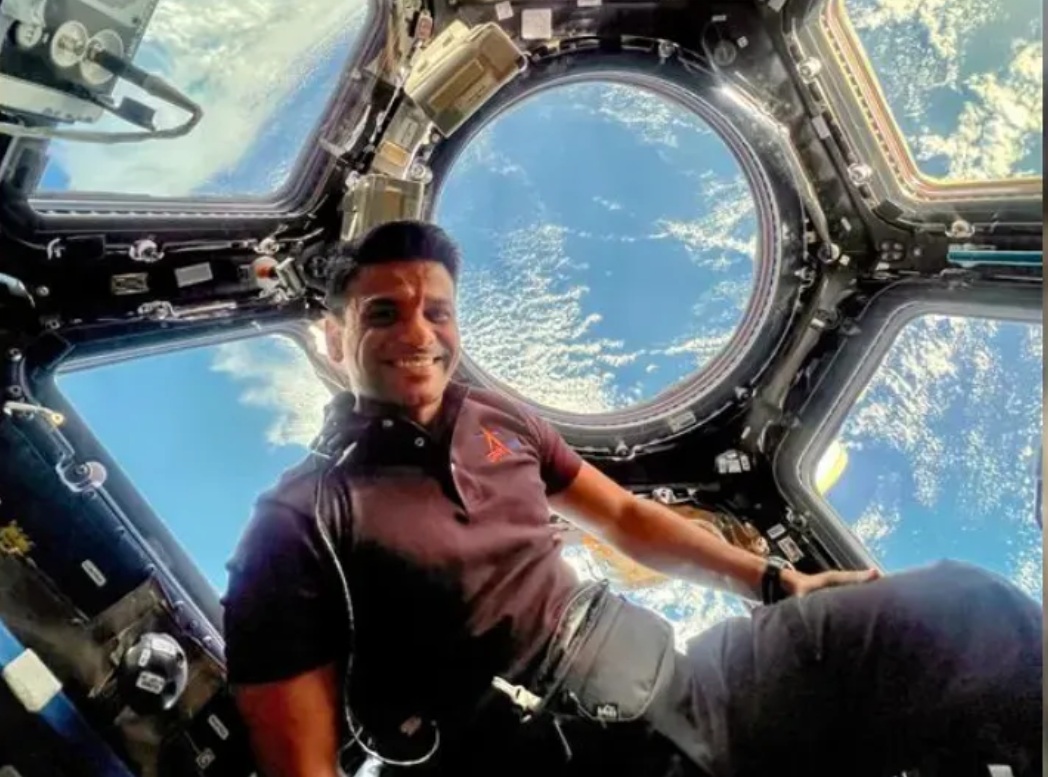Shubhanshu Performed Centrifugation Of And Froze Microalgae Samples. These microorganisms are being closely studied for their potential to support life far from our home planet.

FinTech BizNews Service
Mumbai, July 15, 2025: After spending 16 days living and working aboard the International Space Station, the Axiom Mission 4 (Ax-4) crew wrapped up their research projects and prepared to undockon on Monday, July 14 at 7:05 a.m. ET. Commander Peggy Whitson, Pilot Shubhanshu “Shux” Shukla, and Mission Specialists Sławosz “Suave” Uznański-Wiśniewski and Tibor Kapu have made the most of their time on orbit.
Since arriving, they’ve been involved in more than 60 scientific research activities and participated in over 20 outreach events, advancing research that will contribute to the future of space exploration while inspiring the next generation back on Earth.
Axiom Space, NASA, and SpaceX provided live, joint coverage of the Ax-4 crew’s departure from the International Space Station via axiom.space/live, NASA+, and SpaceX’s website..
Shubhanshu Shukla’s RESEARCH
Shux performed a centrifugation of and froze microalgae samples. These microorganisms are being closely studied for their potential to support life far from our home planet.
Meanwhile, the crew continued the Voyager Displays study, which investigates how spaceflight affects eye movement and coordination.
The crew also gathered data for the Voice in Space project, which analyzes how spaceflight alters vocal performance and speech patterns. They also participated in the Acquired Equivalence Test, a cognitive study exploring how astronauts learn and adapt in microgravity.
The crew gathered samples for other human health studies, including Immune Multiomics, Muscular Stimulation, Microbiome Profiling, and Human Gut Microbiota. These investigations aim to deepen our understanding of how the human body responds to life in space, with the goal of ensuring astronaut health on future long-duration missions.
MISSION Research: 60 scientific studie
The Ax-4 research complement includes around 60 scientific studies and activities representing 31 countries, including the U.S., India, Poland, Hungary, Saudi Arabia, Brazil, Nigeria, UAE, and nations across Europe. This will be the most research and science-related activities conducted on an Axiom Space mission aboard the International Space Station to date, underscoring the mission's global significance and collaborative nature to advance microgravity research in low-Earth orbit (LEO). The mission emphasizes scientific portfolios led by the U.S., India, Poland (in partnership with ESA), and Hungary. It aims to boost participation in these countries by involving diverse stakeholders, showcasing the value of microgravity research, and fostering international collaboration. The studies will enhance global knowledge in human research, Earth observation, and life, biological, and material sciences, demonstrating the space research capabilities of the crew's home nations.